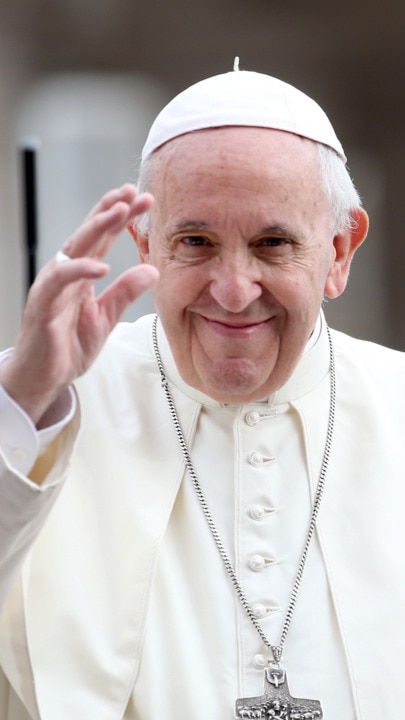Who would have thought that a humble Jesuit priest from Buenos Aires would rise to become one of the most influential figures in modern history? Pope Francis, born Jorge Mario Bergoglio, is not just a religious leader but a global icon for change. His journey from an ordinary boy growing up in Argentina’s working-class neighborhoods to becoming the 266th pope of the Roman Catholic Church is nothing short of remarkable.
Born on December 17, 1936, in Buenos Aires, Argentina, Jorge Mario Bergoglio emerged as the eldest of five children to Italian immigrant parents. His father worked as a railway employee while his mother stayed at home, instilling strong family values in young Jorge. From early childhood, he displayed a keen intellect and curiosity about life, balancing academics with a passion for soccer—a reflection of his deep connection to everyday people. It wasn’t until much later that this same warmth and humility translated into his papacy, where he became known globally for advocating social justice and compassion.
| Personal Information | Details |
|---|---|
| Date of Birth | December 17, 1936 |
| Place of Birth | Buenos Aires, Argentina |
| Parents | Italian immigrants (Father: Railway worker; Mother: Housewife) |
| Siblings | Four siblings |
| Early Education | Chemical Technician training |
| Religious Calling | Entered seminary in 1958 after recovering from illness |
| Career Timeline |
|
| Papal Name | Francis, inspired by St. Francis of Assisi |
| Official Website | Vatican Official Site |
Before ascending to the papacy, Bergoglio served diligently within the Church hierarchy. In 1969, he was ordained as a priest, marking the beginning of a lifelong commitment to service. By 1973, he had risen to prominence when appointed as the Provincial Superior of the Society of Jesus in Argentina. Over the years, his dedication earned him significant responsibilities, culminating in his appointment as Archbishop of Buenos Aires in 1998. Just three years later, Pope John Paul II elevated him to cardinal status, solidifying his role as a key figure within the Catholic Church.
When Pope Benedict XVI resigned in February 2013, the world watched anxiously as cardinals convened for a historic conclave. On March 13, Jorge Mario Bergoglio was elected as the new pontiff, adopting the name Francis in homage to Saint Francis of Assisi. This choice symbolized his commitment to simplicity, humility, and care for the environment—qualities that define his leadership today.
As pope, Francis has distinguished himself through progressive policies aimed at addressing pressing global issues such as poverty, climate change, and inequality. Unlike many predecessors who maintained distance from ordinary believers, he embraces accessibility, often engaging directly with individuals during public appearances. Whether riding public transportation or living modestly in Vatican guesthouses rather than grand palaces, these actions reinforce his message of inclusivity and solidarity.
His tenure also marks several milestones in Catholic history. As the first Jesuit pope, Francis embodies the order's tradition of intellectual rigor combined with practical spirituality. Additionally, being the first non-European pope in over a millennium signifies a shift toward greater representation from diverse regions worldwide. Such appointments reflect broader trends within Christianity itself, emphasizing adaptability amidst evolving demographics.
Beyond theological debates, Francis continues inspiring millions beyond denominational lines. Advocating interfaith dialogue, environmental stewardship, and economic reform, he challenges societies to rethink priorities. For instance, his encyclical Laudato Si' calls attention to ecological crises threatening humanity's future, urging collective action across borders. Similarly, initiatives promoting peacebuilding efforts underscore his belief in reconciliation over conflict.
In private moments too, glimpses reveal the man behind the title. Known for maintaining close ties with friends from youth days despite assuming global responsibilities, he remains grounded in personal relationships. Stories abound recounting how he remembers birthdays, sends handwritten notes, or simply listens attentively whenever someone shares concerns.
While controversies occasionally arise concerning specific decisions made under his guidance, overall support remains robust among both clergy and laity alike. Critics may question certain reforms proposed thus far, yet supporters applaud bold steps taken towards modernizing institutional structures without compromising core beliefs.
Throughout his papacy spanning more than a decade now, Pope Francis maintains unwavering focus on serving those marginalized by society. By championing causes dear to vulnerable populations worldwide, including migrants, refugees, and indigenous communities, he reaffirms the Church's mission to uplift all creation equally. Moreover, through consistent advocacy for gender equality and LGBTQ+ rights discussions, he fosters dialogue necessary for fostering mutual respect.
Ultimately, whether viewed through lenses of faith or secularism, Pope Francis stands out as a transformative figure reshaping perceptions around religion's role in contemporary times. With each gesture, speech, or policy announcement, he invites everyone—not merely Catholics—to join hands creating better futures together based on shared human dignity.
Some lesser-known facts highlight unique aspects of his personality. For example, prior to entering priesthood, he trained as a chemical technician. Furthermore, proficiency in multiple languages including Spanish, Latin, Italian, German, French, Portuguese, English, and Ukrainian showcases linguistic versatility rarely seen among popes historically. These traits contribute significantly to bridging cultural divides effectively throughout ministry endeavors.
Thus, Pope Francis exemplifies what it means to lead authentically, guided by principles rooted deeply in compassion, wisdom, and courage. Through every challenge faced along the way, he persists steadfastly striving toward realizing visions aligning humanity closer to divine ideals envisioned originally millennia ago.



